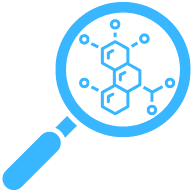Welcome to this comprehensive exploration of the significant role biostatistics plays in public health. This post will delve into the ways biostatistics helps us understand and solve complex health-related issues. We'll cover everything from the basic concepts of biostatistics to its application in various public health sectors. So, let's embark on this journey to understand the profound influence of biostatistics in shaping public health policies and practices.
The Essence of Biostatistics
Biostatistics is a discipline that applies statistical methods to biological phenomena. It plays a pivotal role in public health by providing the tools to collect, analyze, and interpret data. These data-driven insights help in decision-making processes, policy formulation, and implementation of health programs.
Biostatistics is not just about crunching numbers. It's about understanding the story those numbers tell. It aids in identifying health trends, assessing the effectiveness of interventions, and predicting future health scenarios. Without biostatistics, we would be navigating the complex world of public health in the dark.
Biostatistics in Epidemiology
Epidemiology is the study of how often diseases occur in different groups of people and why. Biostatistics provides the mathematical foundation for this field. It helps in designing studies, collecting and analyzing data, and interpreting the results.
Biostatistics allows us to quantify the risk factors and measure the impact of interventions. It helps in understanding the spread of diseases and the effectiveness of preventive measures. Without the statistical tools provided by biostatistics, epidemiology would lose its precision and predictive power.
Biostatistics in Health Policy and Management
Health policy and management is another area where biostatistics plays a crucial role. It provides the evidence base for health policies and helps in evaluating their impact.
Biostatistics helps in identifying health disparities, assessing the cost-effectiveness of interventions, and predicting the future health needs of a population. It provides the data needed to make informed decisions about resource allocation and strategic planning. Without biostatistics, health policy and management would be based on guesswork rather than evidence.
Biostatistics in Clinical Trials
Clinical trials are a critical component of public health. They test the safety and effectiveness of new drugs and treatments. Biostatistics plays a key role in the design, implementation, and analysis of these trials.
Biostatistics helps in determining the sample size, selecting the control group, and analyzing the results. It ensures that the conclusions drawn from the trials are valid and reliable. Without biostatistics, the results of clinical trials would be questionable at best.
Biostatistics in Health Education and Promotion
Health education and promotion aim to improve health literacy and promote healthy behaviors. Biostatistics provides the evidence base for these initiatives.
It helps in identifying the most effective strategies, assessing their impact, and refining them based on feedback. Biostatistics ensures that health education and promotion efforts are grounded in evidence and have a measurable impact. Without it, these efforts would be less effective and harder to justify.
The Future of Biostatistics in Public Health
The role of biostatistics in public health is not static. It continues to evolve with advances in technology and the growing complexity of health issues.
Big data, artificial intelligence, and machine learning are opening up new possibilities for biostatistics. They are enabling more sophisticated analyses and predictive modeling. The future of public health will be increasingly data-driven, and biostatistics will be at the forefront of this transformation.
Wrapping Up: Biostatistics and Public Health
In conclusion, biostatistics is an indispensable tool in public health. It provides the evidence base for decision-making, policy formulation, and implementation of health programs. As we move towards a more data-driven future, the role of biostatistics in public health will only become more critical. So, let's continue to explore and appreciate the profound impact of biostatistics on our health and well-being.

